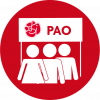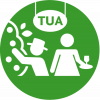Anti-corruption

Why take measures to prevent corruption?
The risk of corruption is greatest in countries where the state and its institutions are weak, the form of government is undemocratic, and civil society is not well-established.
At the same time, poorly developed democratic institutions and a lack of democratic culture help allow corruption to spread unchecked.
Corruption, in turn, hinders societal development and serves as an obstacle to democracy and human rights. It is therefore essential to take a zero-tolerance approach to corruption. Preventing and combating corruption makes a major contribution to democratic development.
Help us fight corruption!
Sound the alarm about suspicions of corruption or other irregularities in the operations. You can be anonymous and secure.













